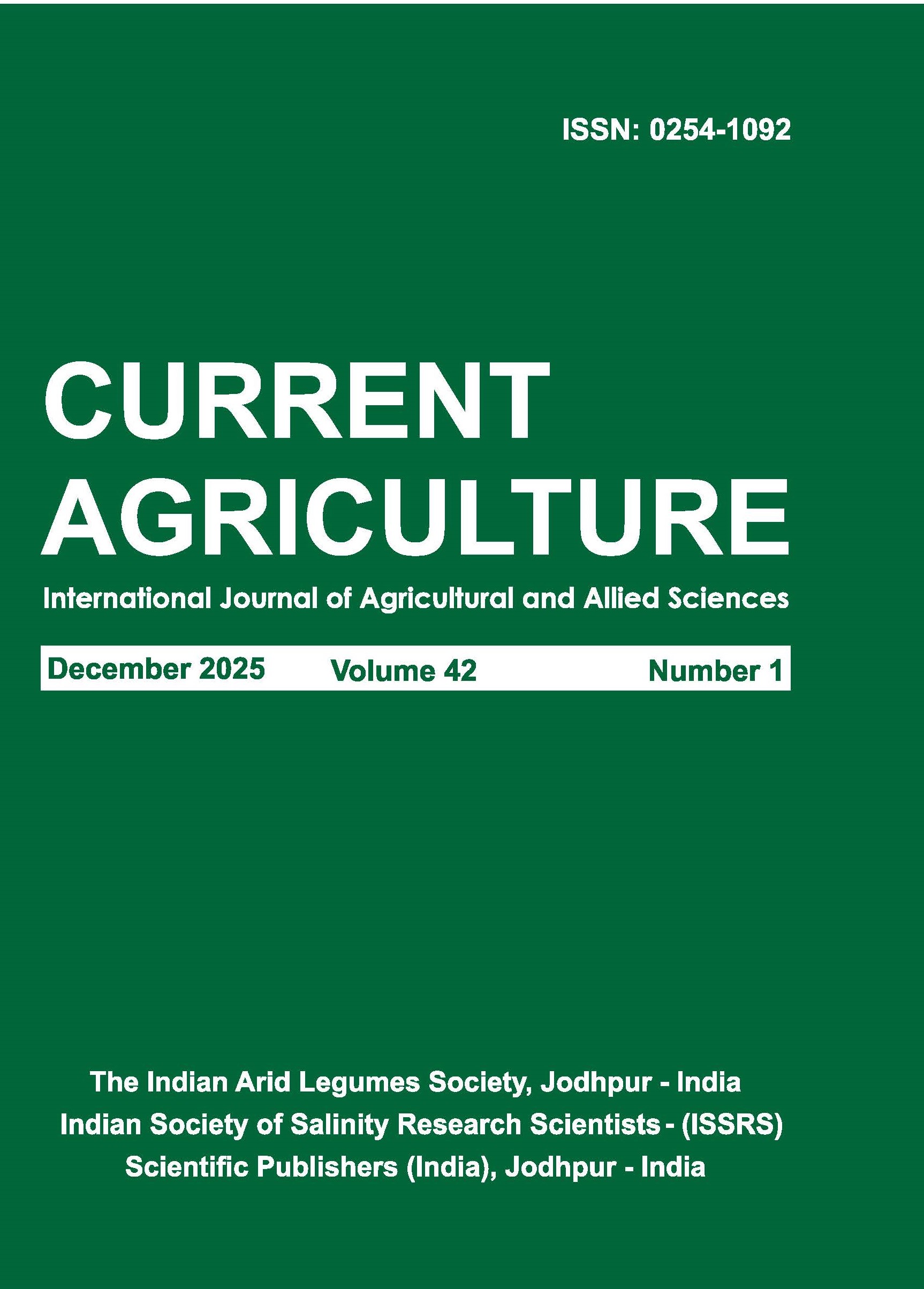Clusterbean [Cyamopsis tetragonoloba (L.) Taub.] is an important industrial arid legume crop valued for its multipurpose uses, including vegetable (pods), green fodder, green manure, guar gum extraction, and seed production. In India, it is predominantly cultivated in Rajasthan, Gujarat, Punjab, and Haryana, with Rajasthan contributing over 70% of the national production. However, the crop is highly susceptible to several diseases, notably Bacterial Leaf Blight (BLB) caused by Xanthomonas axonopodis pv. cyamopsidis and dry root rot (DRR) caused by Macrophomina phaseolina, which cause significant yield losses under arid conditions. The present investigation aimed to identify tolerant genotypes through systematic field screening conducted during Kharif 2019 and 2022 under artificially inoculated sick plot conditions. Pathogens were isolated and maintained through standard isolation and inoculation techniques, including toothpick and stalk methods for DRR and furrow inoculation for BLB. A total of 100 genotypes were evaluated across the years. None of the genotypes exhibited complete immunity; however, notable resistance and moderate tolerance were identified. Genotype CAZG-15-3-5 showed high resistance against BLB in 2022. Consistent resistance to DRR was recorded in genotypes CAZG17-4-2, CAZG17-4-5, CAZG17-12, CAZG16-5-1, and RGC1066 over consecutive years. Additionally, several genotypes showed moderate resistance to BLB across the seasons, suggesting their potential utility in resistance breeding programs aimed at developing durable disease-resistant clusterbean cultivars for arid regions. These findings provide valuable insights into host-pathogen dynamics and lay the groundwork for future varietal improvement strategies to enhance clusterbean productivity under challenging agro-climatic conditions.






